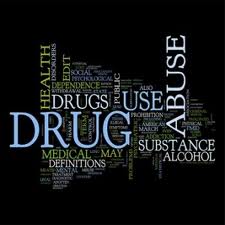 When those we love struggle with addiction, we want to do what is best to help them. Intervention is sometimes a necessary process. Many people aren’t sure what it means to create an intervention. Asking the addicted to seek treatment sometimes isn’t enough, especially if they don’t think that they have a problem. Interventions help show the addicted the alternatives to the way that they are choosing to live. But how can we support a loved one through an addiction and encourage them to seek treatment?
When those we love struggle with addiction, we want to do what is best to help them. Intervention is sometimes a necessary process. Many people aren’t sure what it means to create an intervention. Asking the addicted to seek treatment sometimes isn’t enough, especially if they don’t think that they have a problem. Interventions help show the addicted the alternatives to the way that they are choosing to live. But how can we support a loved one through an addiction and encourage them to seek treatment?
Each person that is addicted to drugs or alcohol needs hope, love, and faith from those that they surround themselves with. They need to feel accepted and valued, especially when considering entering treatment. It is important that they feel heard, but it is also important that they face the harsh reality of their addiction and what it is doing to their life.
 An intervention may be the next step to take when other methods fail. Let’s take a look at the basics of intervention first. An intervention is a gathering of people that love and care about the addicted. It is friends, family, and those closest to the addicted that want to support them going into treatment. Those that are not supportive of the group effort should not be included. The intervention should be led by a trained professional, someone who can focus the group and remain objective when speaking to the addicted. It is important that the group stays on track, and having someone that is removed emotionally from the situation will help things to go smoothly. A professional will also help you determine what is going to happen after the intervention. If the addicted chooses not to go to treatment, there has to be consequences. A therapist will be able to help you determine what those consequences are. They will also be able to put you into contact with programs that are most suitable for your loved one.
An intervention may be the next step to take when other methods fail. Let’s take a look at the basics of intervention first. An intervention is a gathering of people that love and care about the addicted. It is friends, family, and those closest to the addicted that want to support them going into treatment. Those that are not supportive of the group effort should not be included. The intervention should be led by a trained professional, someone who can focus the group and remain objective when speaking to the addicted. It is important that the group stays on track, and having someone that is removed emotionally from the situation will help things to go smoothly. A professional will also help you determine what is going to happen after the intervention. If the addicted chooses not to go to treatment, there has to be consequences. A therapist will be able to help you determine what those consequences are. They will also be able to put you into contact with programs that are most suitable for your loved one.
An intervention just might be the wake-up call that your loved one needs. Interventions are tricky, as it is often hard to tell how the person is going to react. What happens if they become agitated by the thought of recovery? Will it push them even farther away? Are you going to be able to stick to your consequences if they refuse treatment? These are all very common questions when considering an intervention for your loved one. People often have a lot of shame in having to leave their families and lives behind to seek help, causing them to be hesitant about going to treatment. They will come up with just about any excuse they can to not seek help. It is important to be reassuring that things will be taken care of while they are away, all in an attempt to set them more at ease and fully consider treatment options.

Different types of people need different types of treatment and recovery support. Some can stay clean with just therapy and AA-type meetings, but often times people in recovery need more support. An hour or two a week just might not be enough. Out-patient treatment is also available in many areas. Out-patient treatment may involve the addicted going to a recovery centre for classes, workshops, group meetings and additional therapy/support. Therapy is a great way for the addicted to take an honest and hard look at themselves, something that they might not have done in a very long time. This also means that they might see something that they don’t necessarily like. Numbing out these feelings is something that the addicted has become very good at throughout their substance abuse, and this is why relapse is so common in the recovery process. This is where in-patient treatment facilities come in. An in-patient treatment facility is a place that offers round-the-clock support and monitoring for those in the in-patient program. They are very structured environments, focusing on the recovery process and learning more about one’s self. In-patient treatment is also available for families. These programs allow the family to work through issues of co-dependency as well as work on providing an environment conducive to recovery and healing when the addicted is out of treatment.

Addiction changes people. It makes them do and say things that they might not have otherwise said or done. It eats away at their body, mind, and soul, destroying relationships and lives in the process. But recovery is possible. Many addicts do not see the light at the end of the tunnel, and that is why it is so important that their friends and families do. Supporting your loved one and encouraging them to seek treatment may just be the push that they need to start the recovery process.
